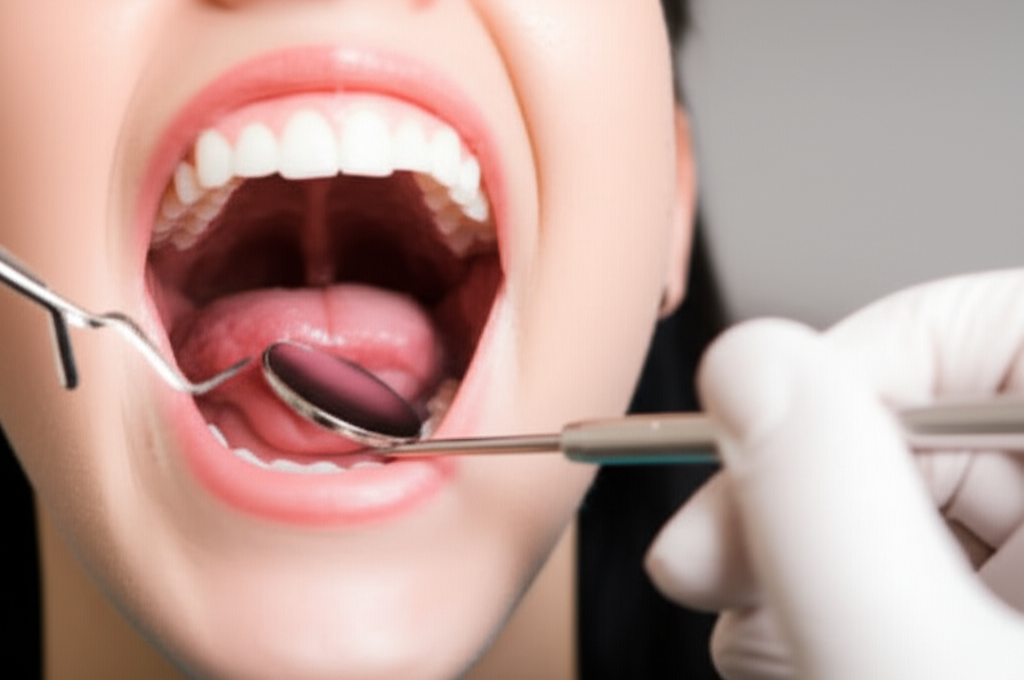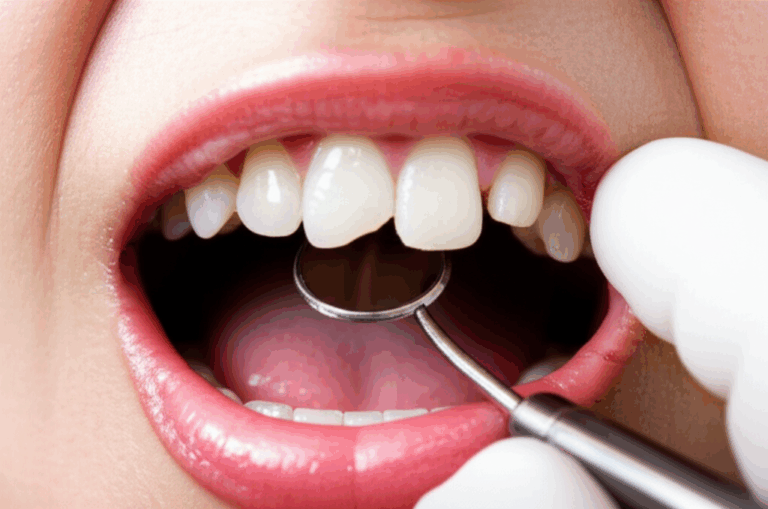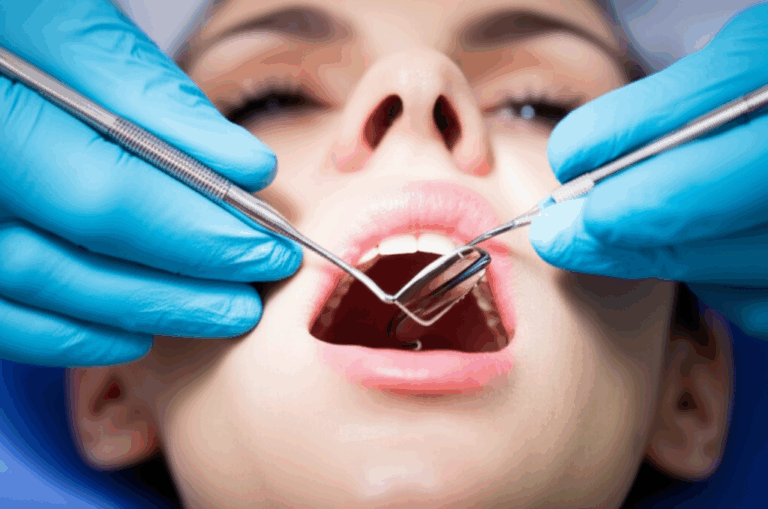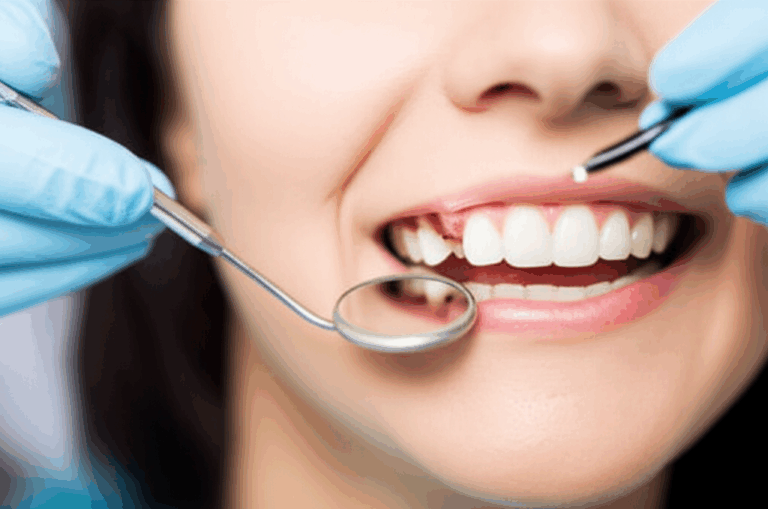
Can a Dentist Diagnose Tonsillitis? Understanding Their Role in Your Throat Health
That nagging sore throat, swollen tonsils, and sore, scratchy feeling—sound familiar? Maybe you’re sitting in the dental chair for your regular cleaning when your dentist looks in your mouth and asks, “How long has your throat been hurting?” Suddenly, you might wonder: Can a dentist really tell if I have tonsillitis? Or should I see my regular doctor instead? If you’ve ever thought about this—or been unsure whose advice to follow—you’re in the right place.
Most people know dentists work with teeth and gums, but you may not realize their skills go a bit further. Dentists look closely at the whole mouth and the entrance to your throat—the exact area where tonsillitis often shows up. Let’s clear up the facts, crush a few myths, and help you make good choices for your care.
What We’ll Cover
- Can Dentists Diagnose Tonsillitis? The Short Answer
- What Dentists Actually Do: Looking, Noticing, and Warning You Early
- Why Tonsillitis Is (Mostly) a Doctor’s Job: Diagnosis and What Dentists Can’t Do
- The Referral Process: When Dentists Send You to the Doctor
- Why Your Dentist’s Eye Matters
- What Should You Do if Tonsillitis Is Suspected?
- Frequently Asked Questions
- Your Healthy Takeaway—What to Do Next
Can Dentists Diagnose Tonsillitis? The Short Answer
Here’s the simple truth: Dentists are not the right experts to say for sure if it’s tonsillitis or to treat it. Their main job isn’t to do throat tests or give medicine for throat infections. But here’s the twist—dentists can catch early clues that something is wrong.
During your check-up, your dentist will look at more than just teeth and gums. They’re trained to spot redness, swelling, weird spots, and other changes in your mouth and the back of your throat. Think of them as detectives, looking for anything that seems off—including signs of tonsillitis.
So even though a dentist won’t finish the exam by saying “You have tonsillitis!”—they may still tell you to see your doctor and help you get help sooner.
What Dentists Actually Do: Looking, Noticing, and Warning You Early
Why Dentists Look Beyond Your Teeth
You might think a dental check only means checking your teeth and then cleaning them. In reality, dentists are taught to look at the whole mouth—tongue, cheeks, roof and floor of the mouth, saliva glands, back of the throat, and yep, your tonsils. This is because a lot of health problems (even ones you may not think about) start to show up in these hard-to-see spots.
What Dentists Notice During Your Visit
- Swollen or Red Tonsils: Puffiness or redness at the back of your throat is something both dentists and doctors can spot.
- White Patches or Dots: These are often seen in bacterial tonsillitis, like strep throat.
- Trouble Swallowing: If you flinch or have a hard time swallowing during your exam, your dentist will pick up on it.
- Enlarged Lymph Nodes: Sometimes dentists gently press along your neck and jaw to check if your lymph nodes—those small immune “stations”—are swollen.
- Bad Breath That Won’t Go Away: If your breath is bad, even with good brushing, it might mean infection, like tonsillitis or tonsil stones.
- Changes in Your Voice: A muffled or hoarse voice can point to swelling inside your throat.
- Other Problems: Feeling tired, having a fever, pain in your ears, or your jaw hurting.
Here’s an easy way to picture it: Your dentist is like someone guarding the border—they may not open every suitcase, but they can spot if someone looks sick and send them for more checking.
Looking Past Teeth—Dentists as Health Helpers
Did you know dentists can also spot early signs of things like diabetes, vitamin shortages, and even oral cancer? This is one more reason to get check-ups, even if your teeth feel fine. Dentists are on the front line for your health, not just for your mouth. They’re often the first healthcare worker to spot something wrong—sometimes, before anyone else.
Why Tonsillitis Is (Mostly) a Doctor’s Job: Diagnosis and What Dentists Can’t Do
So, What is Tonsillitis Anyway?
Tonsillitis simply means your tonsils—the two soft pads at the back of your throat—are swollen and sore. It’s usually from a virus or bacteria like strep. Symptoms include sore throat, pain when swallowing, swollen tonsils, a white or yellow layer, fever, and swollen neck.
Why Dentists Don’t Diagnose Tonsillitis
Dentists are experts in teeth, gums, and mouth problems. While they can see oral infections and sores, saying for sure if you have a throat infection just isn’t their job. Here’s why:
- What They’re Allowed to Do: Tonsillitis, sore throats, and these kinds of infections are mainly handled by family doctors, pediatricians, or ENT (ear, nose, throat) doctors.
- Special Tools Needed: Doctors do swabs, fast strep tests, blood tests, and sometimes scans—things dentists don’t do in their offices.
- Medicine: Dentists can only prescribe antibiotics for mouth infections, not for throat infections like tonsillitis. That’s up to your doctor.
Think of your dentist as a good spotter, not the person who makes the final call. They’ll warn you there’s a possible problem but pass you to your doctor for the answer.
What If a Sore Throat Feels Like a Tooth Problem?
Sometimes, a sore throat feels like it might be from your teeth (or the other way around). Dentists are good at telling if your pain is more likely from your mouth or your throat, which helps you get to the right place without wasting time.
The Referral Process: When Dentists Send You to the Doctor
If Your Dentist Thinks It Might Be Tonsillitis—What Happens?
Plenty of times, a dentist might say, “Your tonsils look swollen with some white spots—these might be signs of infection like tonsillitis.” At this point, they need to tell you to see your regular doctor. They’ll explain what they see and may even give you a note to take with you.
Who Will You Be Sent To?
- Family Doctor: For most grown-ups.
- Children’s Doctor (Pediatrician): For little kids and teens.
- ENT Doctor: For really bad or repeat cases.
Why Referral is Important
- You Get Help Faster: Getting to your doctor quickly means you can start feeling better sooner and avoid big problems.
- You Save Time and Money: If the issue isn’t with your teeth, you don’t waste time or pay for the wrong treatment.
- Better Records: The dentist can update your file, making your next check-up go smoother.
A Simple Example
You see the dentist for jaw pain and a sore throat. The dentist notices swollen tonsils with white spots and feels some swollen neck glands. They say, “This looks like it could be tonsillitis. You should see your doctor soon.” You go to the doctor, get medicine, and feel better before it can get worse.
Why Your Dentist’s Eye Matters
Dentists as Your Health Watchdogs
Did you know you might see your dentist more often than your doctor? That means your dentist plays a big part in keeping you healthy, especially since tonsillitis can show up between regular check-ups.
The Power of Catching Things Early
- Finding Problems Early: Dentists look in your mouth more than anyone else and can find trouble before it gets serious.
- Tell the Difference: Not every sore throat is tonsillitis; dental abscesses, oral thrush, or even tonsil stones can look similar. Dentists can help work it out.
Dentist Problem or Doctor Problem?
Here’s a table to break it down:
| Symptom | More Likely Dental | More Likely Tonsillitis |
|---|---|---|
| Local gum swelling | ✓ | |
| Red, swollen tonsils | ✓ | |
| Tooth pain when chewing | ✓ | |
| White spots on tonsils | ✓ | |
| Bad breath (won’t go) | ✓ | ✓ |
| Sore throat + fever | ✓ |
So, if your dental exam looks normal but your tonsils are red and swollen, your dentist should tell you to see a doctor.
Mouth Health and Body Health—They’re Joined
You may have heard, “the mouth is a window to the body.” Experts, like from the American Dental Association, say mouth problems are often linked with health problems like diabetes, heart conditions, or immune problems.
Regular dental visits aren’t just about clean teeth—they help protect your whole health. Tonsillitis is just one example of a medical problem that can show up in your mouth.
What Should You Do if Tonsillitis Is Suspected?
Don’t Brush Off Throat Pain—What Should You Watch For?
Sometimes, you might ignore a sore throat, thinking it’s just a cold. Other times, your dentist notices a problem first. Either way—don’t wait! Tonsillitis may need quick care, especially if it is caused by bacteria.
Here’s what you should do:
Signs You Might Have Tonsillitis
- Sore throat that hurts, especially when you swallow
- Red, swollen tonsils—maybe with white or yellow stuff on them
- Fever
- Swollen neck nodes
- Bad breath you can’t get rid of
- Voice sounds more muffled or raspy
- Ear or jaw pain, especially if it “travels” from the throat
- Trouble opening your mouth wide
What To Do Next
If you or your dentist think it could be tonsillitis, get checked by your family doctor. They may do a quick strep test or other checks to know for sure.
This helps keep your full health history together. If you get antibiotics or have problems, your dentist can know for future care.
If your throat or mouth hurts at your dental visit, tell them! More info lets the dentist care for you better.
Simple home care (like saltwater rinses or resting your voice) is okay for light pain. But if pain, high fever, or trouble swallowing go on, see your doctor.
When to Get Help Right Away
Go to an urgent care or ER if you have:
- Trouble breathing
- Can’t swallow or drooling a lot
- Can’t drink or seem dehydrated
- High fever that won’t go down
- Can’t open your mouth suddenly
Frequently Asked Questions
Q: Can my dentist give me antibiotics for a sore throat?
A: No. Dentists can give antibiotics for tooth problems, but not for throat sickness like tonsillitis or strep throat. Only doctors can do that.
Q: Does my dentist check my throat every visit?
A: Most dentists do look at the back of your mouth, especially during big exams. It’s part of a full-mouth check.
Q: Can a dentist take out tonsil stones?
A: Some dentists will remove easy-to-reach tonsil stones, but bad cases usually need a doctor.
Q: Should I tell my dentist if my throat hurts?
A: Yes! The more you share, the better your care.
Q: Who should I see for my sore throat—a dentist or a doctor?
A: For throat pain, fever, or swollen tonsils, see your doctor. The dentist helps watch for early warning signs but isn’t a replacement.
Your Healthy Takeaway—What to Do Next
Let’s put it all together:
Key Points to Remember
- Dentists cannot make the final call or treat tonsillitis, but they can spot problems and warn you.
- Your dentist’s most important role is to notice and send you to the doctor when they spot signs in your mouth or throat.
- Seeing the dentist often can help catch sickness early and get you help faster.
- Always tell your dentist about throat pain, trouble swallowing, or fever at your visits.
- Go to the doctor if you—or your dentist—notice any big signs of tonsillitis.
What To Do Next
- Keep up with regular dental visits—your dentist helps protect more than just your teeth.
- If your throat feels sore, see your doctor early—don’t wait too long.
- Speak up with both dentist and doctor about any new symptoms. They’ll help each other help you.
- Brush and care for your mouth—good mouth health helps stop some infections (even some in your tonsils).
Want to learn more about how new dental tech helps with check-ups and early warning? See how digital dental labs are making it easier to spot problems with special tools—sometimes picking up warning signs even faster than before.
Quick Glance: When Should You See the Dentist vs. the Doctor?
| See Your Dentist When… | See Your Doctor When… |
|---|---|
| Regular cleaning/check-up | Sore throat lasts >3 days |
| Bad breath won’t get better | Trouble swallowing |
| Tongue or gum hurts | Fever comes up |
| Jaw pain that won’t go away | White spots on tonsils |
| Dentist sees throat problem | Neck is swollen or sore |
Want to Explore More?
What about other health signs your dentist might find?
Dentists sometimes spot hints of bigger problems—like immune diseases, low vitamins, or even mouth cancer. Early checking matters just as much as with tonsillitis! If you want to see what’s new, our crown and bridge lab page shows more about dental tech, or look up dental ceramics to see how strong, healthy smiles begin.
Final Word: Dentist and Doctor—Better As a Team
Think of your dentist and doctor as the same team, working on different parts of the field. Your dentist’s sharp eyes may spot trouble before it gets big. For tonsillitis, your doctor makes the call—but it could be your dentist who gets you the help you need first.
Your move: Keep up those check-ups, talk about any new pains, and be ready to see your doctor when something doesn’t feel right. You—and your tonsils—will be glad you did.
Sources: American Dental Association, Centers for Disease Control and Prevention, American Academy of Otolaryngology—Head and Neck Surgery, WHO Oral Health Guidelines, peer-reviewed dental journals.
For more about modern mouth care and how dentists help find both dental and health problems early, see what leading china dental labs are doing to make dental visits better than ever.
Remember: If you have a question about more than just your teeth—don’t be scared to ask. Your dentist is there to help, and sometimes, being curious is the best medicine.








